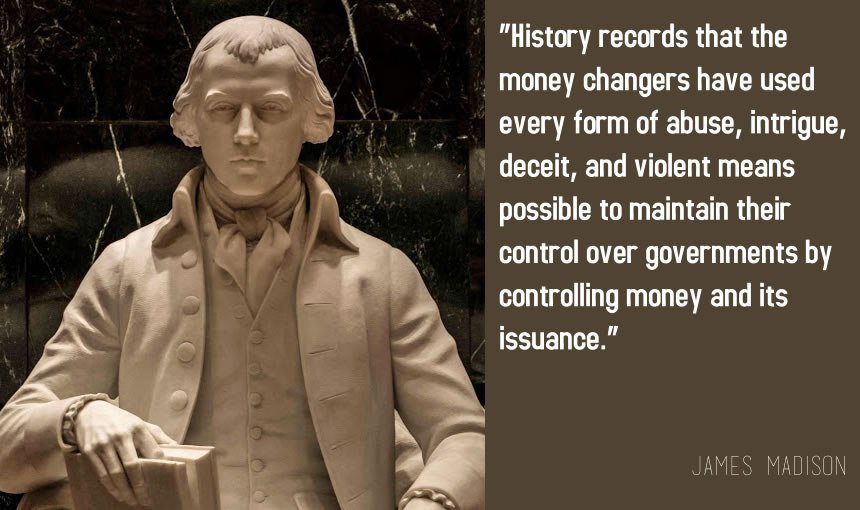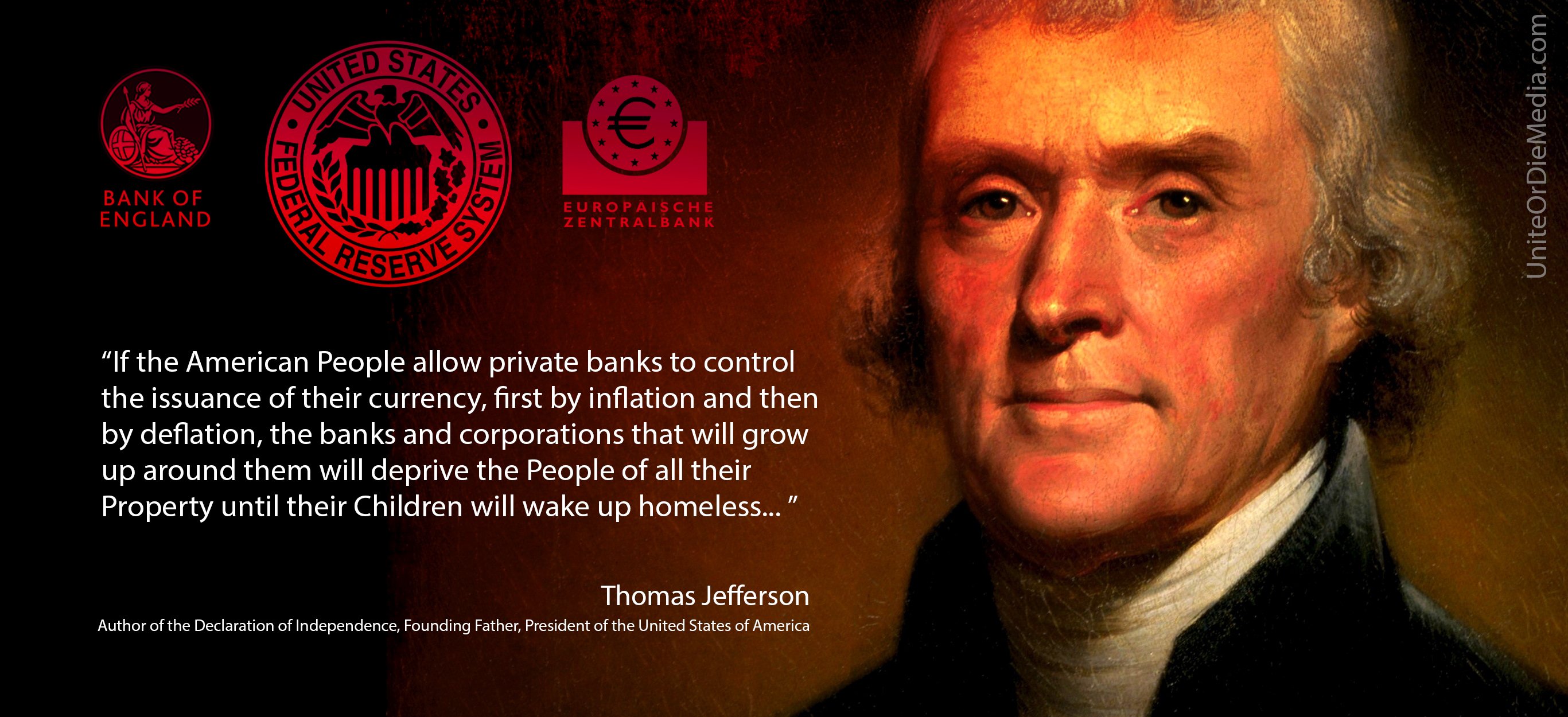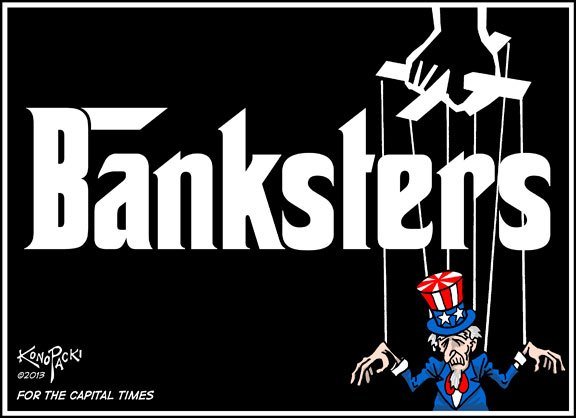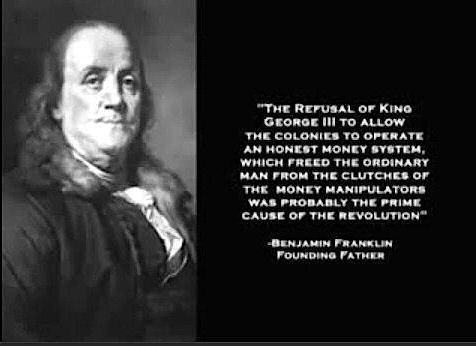
Unless you suffer from a serious IQ deficit, you are already aware of the rotten stench waifing from the foundations of our current monetary system. Even though most people know that there is something seriously wrong with our monetary systems, they don't necessarily understand why they are such a disaster and what the best route is to solve this problem in the long term. I won't get into the minutiae of what the problems are, but I will explain the basics of our biggest challenges and what a proper monetary system solution should look like to counteract them.

A quick primer on how banks and governments have manipulated and controlled our monetary systems to date
Understanding the monetary system requires first to understand what money is and how it is created. Money is actually just a legal artifice that is designed to act as a neutral intermediary for exchanging value between different goods. It simply allows us to exchange something as a standardized "value intermediary" rather than requiring us to barter goods that not everyone necessarily wants. (Maybe I don't want to sell my car in exchange for your Lada Gaga poster collection.) The intent of money has always been to simplify trade between two parties. To do this, money should also have some very specifc attributes to make it most useful - attributes like acceptability, fungibility (i.e. homogeneity), divisibility, cognizability, stability, portability, durability, etc.
Historically, precious metals have been one of the most popular monies in major civilizations. With very little technology required, precious metals could easily fulfill all of the major requirements of money. The biggest problem was their lack of portability. Precious metals are extremely heavy and difficult to transport in large amounts. For this reason people eventually started exchanging notes representing precious metals on account rather the precious metals themselves. This lead to commodity backed money. As an example, the Knights Templar made vast fortunes during the Crusades by providing what were the basics of banking and commodity money. They would provide a receipt for gold or silver in one location (e.g. France) and then provide gold or silver back for that receipt in another location (e.g. Syria). Although usury was illegal for Christians (that meant ANY loaning of money at interest), their fees were not small and so they amassed huge sums of money from this little business venture.
The big problem with commodity money that eventually arose is that these "banks" could provide checks for more gold or silver than they had on account. This meant they could make a lot of extra commodity money for themselves without their business partners ever knowing it. This is fraud. Unfortunately, this fraud became so common that the banks that evolved were eventually allowed to commit this fraud to a specific amount in each country. These are essentially the country specific rules of fractional reserve banking and money creation. This is how much real money needs to be kept on reserve for clients within a bank. Today, this doesn't mean precious metals though, it means how much physical and electronic fiat money is kept on account in comparison to how much that can be loaned out.
Fiat money, or money with no backing whatsoever, came about when Richard Nixon closed the gold window in 1971. The Bretton Woods Conference in 1944, which created the IMF and World Bank, stipulated that the US dollar would become the world's reserve currency, but with the requirement that the US dollar must be directly exchangeable for a specific amount of gold. Nixon stopped that exchangeability and eventually also stopped any exchangeability of US dollars for precious metals. This meant that the value of money was now based solely upon a perception of value rather than any intrinsic value of a commodity behind it.
Even worse than the fact that we have fiat money, we now have private bank created, debt-based fiat money. Since the Federal Reserve was founded in 1913, a trick similar to a game of Three Card Monty has been put in place in the monetary creation mechanisms around the world. Governments no longer create their own money, but rather hand over the creation of that money to central, private banks with the appearance of government ownership. These central banks give the governments loans of fiat currency in exchange for governments giving the central banks IOUs in the form government bonds. There is absolutely no need for this mechanism except to create the perception that the private central banks actually do something to earn the interest on these "loans" to the government. It is the ultimate scam to extract insane money from governments and to put the governments into perpetual debt. This also allows the banks to keep governments on the leashes of the world's most powerful bankers. Today, this value extraction scheme has gone so far that every government is in debt to the point of imminent collapse and all markets have accordingly been ballooned in an effort to keep making money for investors despite the massive ongoing value theft at the core of the monetary system. It's a disaster ready to explode and take every bank, government, and market on the globe down with it.
Enter Bitcoin in 2010, and now the next step in the monetary story has been the creation of a new form of fiat currency that is not operated by any government, but has been deemed to have value simply by the trust that only a very limited number of Bitcoins can be created. This trust is based upon the transparency of the code of Bitcoin. In reality, the current value of Bitcoin is based upon the fact that every other market has been inflated to the point of being a Ponzi scheme (with the exception of precious metals which are consistently smashed down via paper derivatives.) Greshem's law states that more trustworthy money chases out less trustworthy money, and since Bitcoin is trusted and rare, people are throwing their eventually worthless fiat money at it in an effort to capture real appreciable value that would otherwise be lost through the inflation of their government fiat money. This is a massive, defensive wealth transfer where traditional money and markets are being hyperinflated via stealth mechanisms, and people are looking for anywhere they can get real returns on this money.
I highly recommend this series below by Mike Maloney on the Hidden Secrets of Money as well as the follow on video here from Ellen Brown on public banking. They give much more detailed context on the challenges and potential solutions to our current monetary systems:

Summing up the real problems with today's monetary systems
Let's summarize the key historical problems with monetary systems before we look to identify the principles of any proper monetary system solutions:
Counterfeiting / fraud - If you or I decided to simply print up more money that diluted the value of money for everyone else, this would be called counterfeiting and it would be considered fraud. It's a form of theft that steals value from everyone else indirectly, yet central banks do it on a massive scale and in the process create what we call inflation
Intransparency / unaccountability - Money is the core of all the value transfer in society therefore the oversight by the people of its handling should be done with maximum transparency and accountability to the people. There should be zero "magic" in how the monetary system is handled
Value of money creation in the control of a minority - The value of money creation should never serve a minority because it simply puts too much power and wealth into the hands of a few people, especially when these few people are typically the most powerful banking interests (and psychopaths) in the world. Central and/or private banks should never have the power to create money. This is how governments are controlled and corrupted by banking
The creation of money exclusively from debt - The creation of money exclusively from debt is a financial construct that should never be allowed. It creates a system that incentivizes and feeds off of debt. Invariably this is a debt load that can never be managed since the whole monetary system from the ground up is based upon a cycle of ongoing debt that can never be repaid
Volatility of money - The volatility of money allows massive speculation and manipulation of markets and prices by those that already have the most wealth, power, and influence. Those that suffer the most are the poor

What a proper monetary system looks like
I will address here the principles of an appropriate monetary system as well as potential examples that could be applied. Every specific approach has it's own pluses and minuses, but the key principles in any legitimate system should generally be the same:
Money creation must be of, for, and by the people - When the American Colonies created their original Continental currency, it had no gold or silver backing yet it became an incredibly successful system until the Bank of England demanded payment of taxes in British Pounds and / or precious metals. The money was created in an extremely controlled manner by the local government and the money was applied in a way that the majority of the people benefited from its creation rather than a handful of bankers (or in the Bitcoin model, a selection of big miners.) This must be a principle that is applied for all monetary systems in order for them to be truly fair and equitable. In such an approach, it can even be possible to fully fund the government and pay no taxes (see the Pennsylvania Colony example in the above Ellen Brown video)
Money must be generally stable in value - Massive price fluctuations cause major problems for businesses and especially for the poorest of society. Stability of monetary value is critical. Although cryptocurrencies have allowed massive wealth creation for many of those that have gotten into them early, the volatility of cryptocurrencies would create a disaster for a sophisticated economy if crypto was only available in its current unstable form
Extremely transparent monetary creation and management - Monetary management is all done behind closed doors today except for the key figures that we get from central banks and related bodies like the IMF. This means that monetary manipulation will be a given. Standard and fully understandable rules along with fully transparent processes for monetary intervention should be available at all times to the populace
Extreme penalties for government or banking corruption - Due to the incredible power of monetary manipulation, any misuse of the money creation and management power against the best interests of the people should be considered treason against the people. Extreme examples need to be made of those that are given this responsibility and still abuse it
Money must be created in the absence of debt - Debt based money, and especially money based upon government debt, is a death knell to the economy and the populace in the long run. Money creation must be a zero-sum game where there is always enough money to pay off any loans plus their interest. If not, a perpetual debt cycle will be created where the debt cycle can never be exited once it is started (except potentially by economic and societal collapse)

There are obviously more principles and history that I have likely missed, but I would be very happy to get your views and feedback on these in the comments section below.



